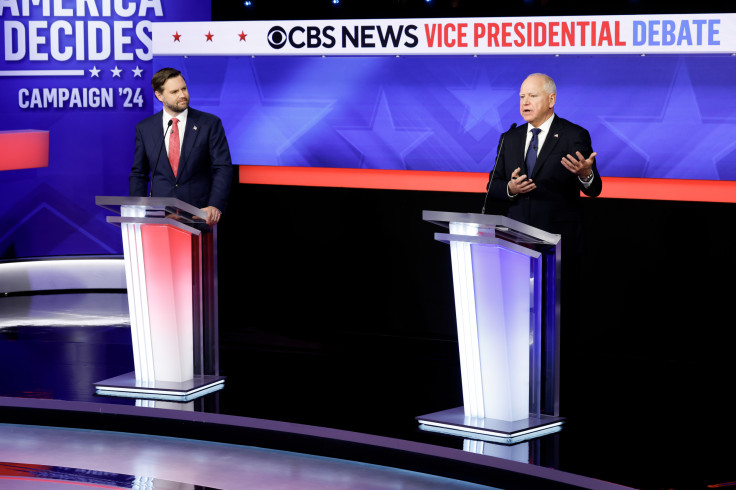From Immigration to the Economy, Vance and Walz Spar on Key Issues During an Unexpectedly Civil VP Debate
Minnesota Gov. Tim Walz and Ohio Sen. JD Vance took the stage Tuesday night for the only VP debate of the season, Here's what you should know.

Minnesota Gov. Tim Walz and Ohio Sen. JD Vance took the stage Tuesday night for the first Vice Presidential debate of the season, and likely the last time the Republican and Democratic campaign will meet before November. In a more civil encounter compared to September's presidential debate, the two candidates went through a long list of issues affecting the American voters, including immigration.
From the economy to reproductive rights, Vance and Walz sparred on their highly distinctive ideologies, and that of their running mates. But while the conversation generally stayed courteous— with the two candidates even agreeing on some basic principles such as the critical state of the environment— the debate started getting heated when one of the most contentious issues of the election season came up— immigration.
Walz and Vance discussed the topic for over ten minutes, with the GOP candidate declining twice to answer the question on whether Trump's proposed mass deportation policies would separate American children from parents who may be undocumented immigrants. Instead, he highlighted what the Republican party has dubbed as Vice President Kamala Harris' "open border" policies, alluding to the unprecedented number of unauthorized crossings in the southern border.
By comparison, Walz brought up Trump's involvement in sinking a bipartisan border bill that would have awarded millions more in funding to the border to halt unauthorized crossings. He also blamed the Senator for sharing false stories about Haitian immigrants in Springfield, Ohio stealing and eating pets.
"This is what happens to an issue when you don't want to solve it," the Democratic Senator said. "You demonize."
The discussion on Haitian migrants resulted in some of the few fact-checking flashpoints by the moderators. CBS' Margaret Brennan offered clarification that a large number of these immigrants in Ohio are in the country legally, thanks to the Temporary Protected Status program. Vance, however, objected to her assertion and tried to get into a lengthy discussion about immigration law, which resulted in the news network cutting both candidates' mics, one of the ground rules on Tuesday's event.
Other top issues in voters' minds took the spotlight throughout the 90-minute conversation.
On the economy, the Minnesota Gov. said the key to improving the economy is building 3 million more houses as Harris has proposed, as it would enable more people to build wealth while making ownership more affordable because supply could match demand.
The Ohio Sen., on the other hand, said Trump's record as president and the preservation of his 2017 tax cuts would do more for growth. He also defended his past criticism of Trump, including new reporting that said criticism extended through 2020.
In recently-resurfaced direct messages, Vance criticized his running mate, writing that "Trump has just so thoroughly failed to deliver on his economic populism," according to The Washington Post.
In response, Vance said that he "was wrong about Trump," but that "there were a lot of things that we could have done better in the Trump administration, in the first round, if Congress was doing its job."
On healthcare, Vance seemed to lay the groundwork for another effort to repeal the Affordable Care Act. The moderators asked him repeatedly how his plans would protect people with health care conditions that would make it hard to buy insurance without the protections of the ACA. He simply responded, "we have laws to protect people with pre-existing conditions."
Reproductive rights also came up, with Walz discussing at length the stories of women in states like Texas, Kentucky and Georgia who have been through terrifying positions as they navigated strict abortion laws. "This is healthcare," he said. Vance acknowledged his anti-abortion statements, but admitted that many Americans had lost faith in his party on the issue of reproductive rights. "We've got to do a much better job at earning Americans' trust back," he said.
The Vice Presidential debate may be the last time both campaigns meet each other before November. At the top of the tickets, Harris is still publicly pressuring Trump on having a second debate, to which he continues to decline on the basis that it is too close to the elections, despite the last debate of the 2020 cycle taking place Oct. 22.
© Latin Times. All rights reserved. Do not reproduce without permission.





















